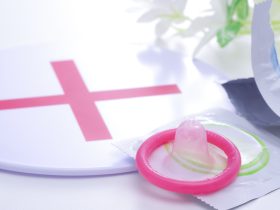The sexual life of young Australian women? A recent study found that more than half experience distress related to their sexuality. This research, conducted by Monash University and published in Fertility and Sterility, surveyed approximately 7,000 women aged 18 to 39.
Of the participants, 50.2 percent reported experiencing personal distress linked to their sexual lives, such as feeling stressed, guilty, embarrassed, or unhappy. Additionally, 20.6 percent had at least one female sexual dysfunction (FSD), and 29.6 percent experienced distress without dysfunction.
The most common FSD observed was low sexual self-image, affecting 11 percent of the respondents. Other FSDs, including arousal dysfunction, desire issues, orgasmic difficulties, and responsiveness problems, were reported by 9 percent, 8 percent, 7.9 percent, and 3.4 percent, respectively.
Around 20 percent of the women in the study were using psychotropic medications, such as antidepressants, but combined oral contraceptives showed no association with sexual dysfunction.
It’s important to note that Sheryl A. Kingsberg, Ph.D., a professor specializing in reproductive biology and psychiatry at Case Western Reserve University School of Medicine, clarified that low sexual self-image is not classified as sexual dysfunction. Instead, it can contribute to various sexual dysfunctions, including hypoactive sexual desire disorder, arousal disorder, orgasmic disorder, and pain during sexual activity.
Understanding the negative connotations associated with body image and self-esteem is crucial. According to Dr. Sheryl A. Kingsberg, these feelings of self-consciousness, insecurity, or negative self-evaluation regarding one’s appearance can significantly disrupt sexual activity.
Negative self-talk tends to divert one’s attention from desire and hinders them from being fully present in the sexual experience. When the mind is preoccupied with self-criticism, focusing on pleasure, sensation, and desire becomes challenging.
Dr. Kingsberg also noted that the prevalence of sexual concerns hasn’t necessarily increased in recent times. Instead, it may be that these concerns have always existed but are now more prominently publicized through media and social media platforms.
She further emphasized that people have historically been concerned about their appearance. However, Dr. Susan Davis, a professor of women’s health at Monash University and the senior author of the study, suggests that the proliferation of social media and readily available mainstream pornography might be intensifying the pressures on young women concerning their sexual appearance.
It’s important to note that women’s dissatisfaction with their sexuality has remained relatively constant over time. However, there has been an increase in their dissatisfaction with healthcare providers addressing their sexual concerns, which Dr. Kingsberg believes is a positive development that reflects a growing awareness of the importance of addressing these issues.
A “wake-up call” about sexual health.
This study serves as a critical wake-up call regarding sexual health, according to Dr. Susan Davis. It underscores the bidirectional relationship between sexual well-being and the quality of a relationship. Research has shown that dissatisfying sex lives can lead to a lower quality of life among women, indicating the profound significance of sexual well-being.
Dr. Davis emphasized that sexual issues may be interconnected with other personal problems or could even serve as indicators of broader concerns. Therefore, addressing young women’s sexual health concerns is of paramount importance. She highlighted the need for healthcare professionals to be open and adequately prepared to engage in discussions about these matters.
The study’s participants consisted of approximately one-third of single women, 47 percent with a normal body mass index, and nearly 70 percent who had engaged in sexual activity within 30 days of completing the questionnaire.
The research found that women who placed significant focus on their appearance, linking it to their physical self-worth, tended to be less sexually assertive and more self-conscious during intimacy, ultimately experiencing lower sexual satisfaction.
Dr. Davis stressed the need for further research to understand why so many young women are distressed about their sexuality. She called for future studies to delve deeper into this complex issue.
A “wake-up call” about sexual health.
For those facing distress or dysfunction related to sexual health, Dr. Sheryl A. Kingsberg recommends seeking assistance from a gynecologist who can provide assessments, treatment, or referrals to specialists in sexual medicine. She emphasized that distressing sexual problems are common in women of all ages, and women should feel empowered to seek information and help to achieve healthy sexual function.
















Find Us on Socials